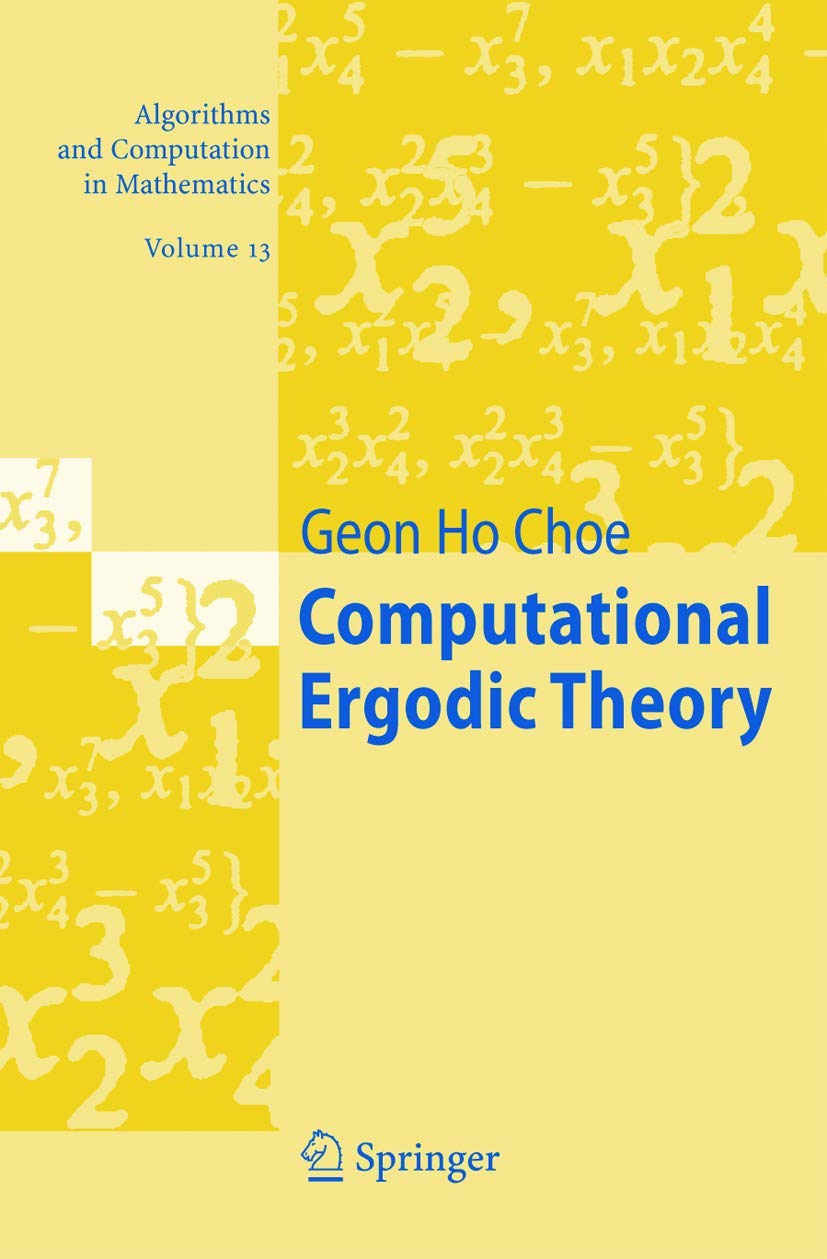Computational Ergodic Theory (Algorithms and Computation in Mathematics)
Computational Ergodic Theory (Algorithms and Computation in Mathematics) is backordered and will ship as soon as it is back in stock.
Couldn't load pickup availability
Genuine Products Guarantee
Genuine Products Guarantee
We guarantee 100% genuine products, and if proven otherwise, we will compensate you with 10 times the product's cost.
Delivery and Shipping
Delivery and Shipping
Products are generally ready for dispatch within 1 day and typically reach you in 3 to 5 days.
Book Details
-
Author: Geon Ho Choe
-
Publisher: Springer
-
Edition: 2005 ed.
-
Binding: Hardcover
-
Number of Pages: 453
-
Release Date: 11-02-2005
-
ISBN: 9783540231219
-
Package Dimensions: 9.3 x 6.2 x 1.3 inches
-
Languages: English, German
About The Book
Ergodic theory, often considered challenging due to its basis in measure theory, becomes more approachable in this unique book by Geon Ho Choe. Designed with students, especially those from physics backgrounds, in mind, the book simplifies complex theoretical concepts through the use of computer experiments. These simulations provide an alternative means of understanding deep theorems, allowing readers to gradually absorb the intricate ideas of ergodic theory through practical experimentation.
This book introduces examples and theoretical ideas that differ from those found in other texts, encouraging students to engage with the subject on a more hands-on level. Even those with less technical preparation can appreciate and understand the profound implications of theorems through these computational exercises. Furthermore, even experienced researchers can benefit from using the book's methods to test conjectures that they may have previously thought too difficult to program.
The final chapter expands the book's scope, exploring the connection between entropy and data compression, linking ergodic theory with information theory. This section provides valuable insight into the digital technology that is integral to our modern information society, offering students a deeper understanding of its underlying principles.





